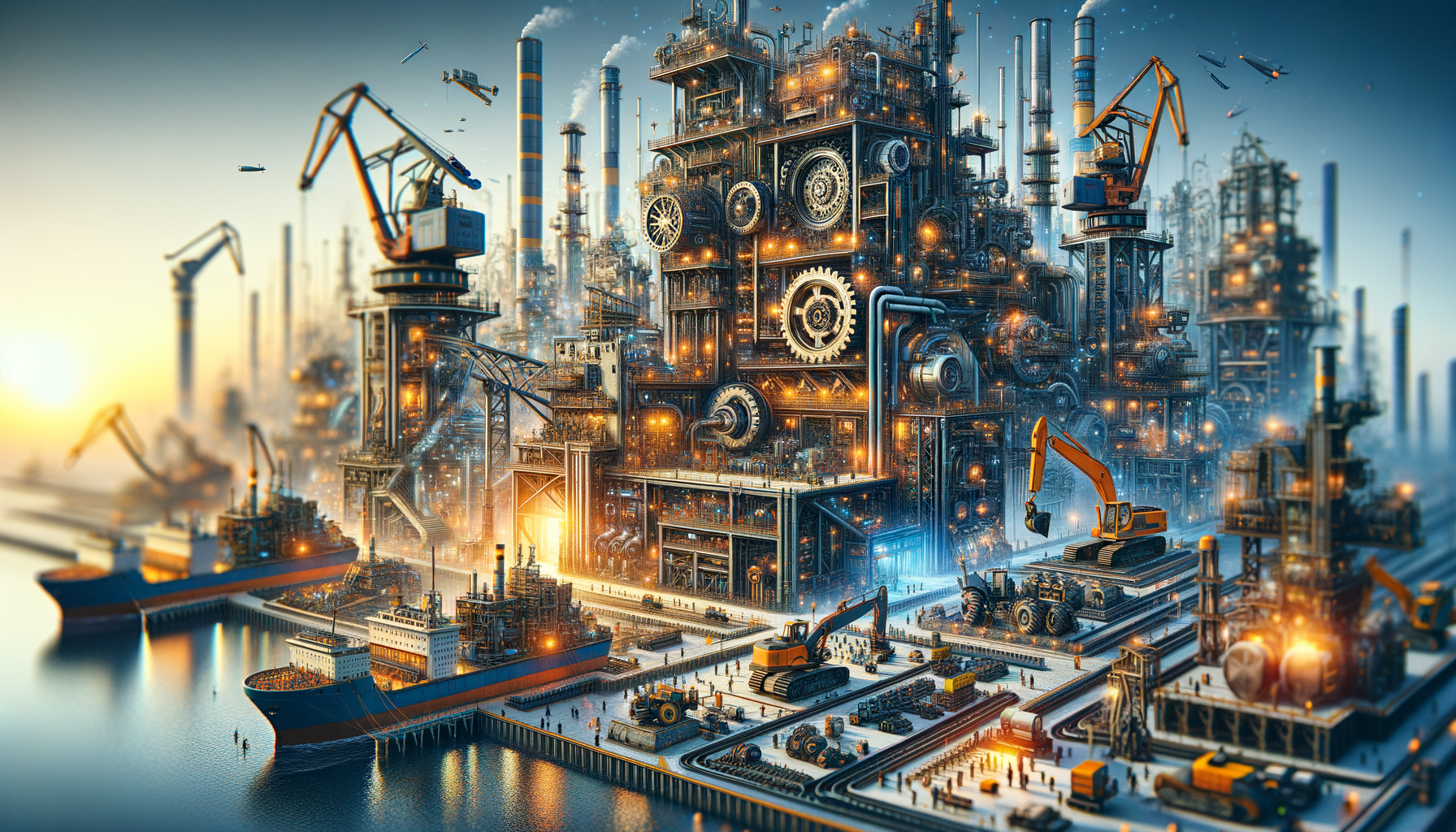The Role of Industrial Machines in Modern Manufacturing
Industrial machines have revolutionized the manufacturing landscape, offering unparalleled precision and efficiency. As the backbone of modern production, these machines are designed to handle tasks that range from simple assembly to complex fabrication. Their ability to consistently produce high-quality outputs makes them indispensable in industries such as automotive, aerospace, and consumer electronics.
One of the key advantages of industrial machines is their ability to operate continuously, minimizing downtime and maximizing productivity. This is particularly beneficial in high-demand environments where meeting production quotas is critical. Additionally, industrial machines can perform repetitive tasks with precision, reducing the likelihood of human error and ensuring uniformity in the final products.
Another significant benefit is the reduction in production costs. By automating processes, companies can lower labor expenses and minimize waste, leading to more cost-effective operations. This not only enhances competitiveness but also allows businesses to pass savings onto consumers, making products more affordable.
Types of Industrial Machines and Their Applications
The variety of industrial machines available today is vast, each serving specific purposes across different sectors. Here are some common types:
- Computer Numerical Control (CNC) Machines: These machines are used for precise cutting, drilling, and milling. They are crucial in industries that require high precision, such as aerospace and automotive manufacturing.
- Robotic Arms: Often used in assembly lines, robotic arms can perform tasks like welding, painting, and material handling. Their versatility and accuracy make them a staple in various manufacturing processes.
- 3D Printers: Revolutionizing prototyping and production, 3D printers allow for the creation of complex parts with intricate designs. They are used in industries ranging from healthcare to fashion.
- Industrial Presses: These machines shape or cut materials using pressure. They are essential in metalworking and plastic manufacturing.
Each type of machine offers unique benefits tailored to specific industrial needs, highlighting the importance of choosing the right equipment for the job.
Advancements in Industrial Machinery Technology
The evolution of industrial machinery technology has been remarkable, with innovations continually pushing the boundaries of what these machines can achieve. One of the most significant advancements is the integration of smart technology, enabling machines to communicate with each other and with human operators seamlessly.
This connectivity leads to improved monitoring and maintenance, as machines can now predict failures before they occur, reducing downtime and maintenance costs. Additionally, advancements in artificial intelligence and machine learning have allowed industrial machines to learn and adapt to new tasks, increasing their versatility and efficiency.
Furthermore, the development of eco-friendly machines is becoming increasingly important as industries strive to reduce their environmental impact. Energy-efficient machines not only help in cutting down operational costs but also contribute to sustainability efforts, aligning with global initiatives to combat climate change.
Challenges and Considerations in Implementing Industrial Machines
While industrial machines offer numerous benefits, their implementation is not without challenges. One major consideration is the initial cost of purchasing and installing these machines, which can be significant. However, the long-term savings in labor and production costs often offset this initial investment.
Another challenge is the need for skilled operators and technicians to manage and maintain the machines. This requires investment in training and development to ensure that staff are equipped to handle the technological complexities of modern industrial machinery.
Additionally, companies must consider the integration of new machines into existing workflows. This can involve reconfiguring production lines and updating software systems, which may disrupt operations temporarily. Careful planning and phased implementation can mitigate these challenges and ensure a smooth transition.
The Future of Industrial Machinery
The future of industrial machinery is poised for exciting developments, driven by continuous advancements in technology. As industries move towards greater automation and digitalization, machines will become even more integral to production processes.
Emerging technologies such as the Internet of Things (IoT) and blockchain are set to enhance machine connectivity and security, respectively. IoT will enable more efficient data collection and analysis, leading to smarter decision-making and improved operational efficiency. Blockchain, on the other hand, will provide secure and transparent records of machine operations and maintenance, reducing the risk of tampering and fraud.
Moreover, the focus on sustainability will drive the development of machines that use renewable energy sources, further reducing the carbon footprint of industrial operations. As these trends continue to evolve, the industrial machinery sector will undoubtedly play a critical role in shaping the future of manufacturing and production.




Leave a Reply